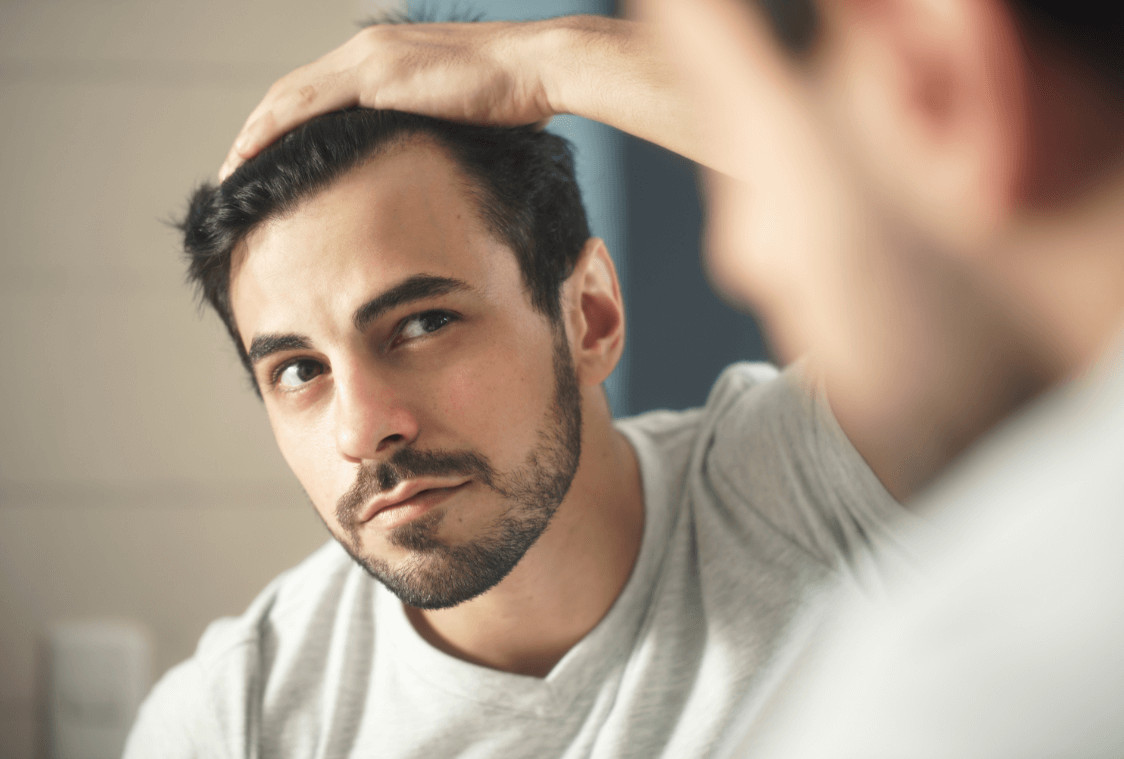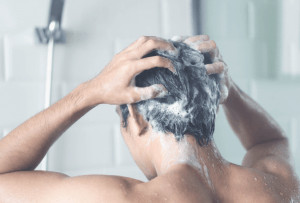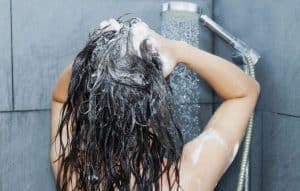How To Stop Hair Loss: Natural Tips To Prevent Hair Loss!

- Hair Loss Causes Explained
- What Causes Hair Loss In Women?
- Can Stress Cause Hair Loss?
- Hair Loss Prevention Explained
- What Is Hair Loss Shampoo?
- Natural Hair Loss Treatment Breakdown
- How To Prevent Hair Loss
- Hair Loss Treatment For Men
- Female Hair Loss Treatment
- Hair Loss Shampoo For Men Breakdown
- Hair Loss Shampoo For Women Breakdown
- Best Natural Remedies For Hair Loss
- Rebundance Bundle Breakdown
- Conclusion
There are some situations in life where hair loss (alopecia) cannot really be stopped or helped. You could be doing everything by the book, and still end up losing your hair. Alternatively, you could have it become much thinner than you’d like it to be. Some hair loss situations or conditions can be overcome without any special intervention or medication, while others require hands-on treatment.
However, you choose to look at it, losing your hair can be distressing. Sometimes it can throw you for a loop, even when it occurs gradually (as is usually the case). With many individuals, it has an effect on self-esteem and so could also contribute to issues like anxiety, depression, and social awkwardness in general.
Hair doesn’t play a major role in evolution, and this is evident from the fact that many humans tend to lose the hair on their head at some point in life. Head hair’s primary function, from a biological standpoint, is to provide additional insulation. Researchers are still debating over the function of hair on other areas of the body, but the hair on the head contributes to cooling and heating the body. Before I get carried away, let’s take a closer look at some hair loss causes.
Hair Loss Causes Explained

Woman with healthy hair.
There are over 20 different types of alopecia or conditions related to baldness. Some are chronic, some are acute, but in general, it is a highly prevalent condition, with the most common condition being androgenic alopecia: male and female pattern baldness, each with its own individual symptoms and expression.
The top reason for alopecia is genetic in origin. Hormones, age, lifestyle, and diet – these all have a role in different types of hair loss. However, you simply cannot rule out the stubborn genetic component, which seems to affect a large amount of the population.
Other common reasons for hair loss are related to mistreating the hair. Any kind of tension or stress can be detrimental to the scalp and hair. If you’re the type of person who always has their hair up in a tight bun or ponytail, this could spell trouble down the road. Anyone who is overly-aggressive with their hair could be in for some thinning or excessive shedding, based solely on their styling and brushing technique.
Autoimmune diseases are also prime candidates for the onset of hair loss. If there is a pre-existing condition, it could be that a secondary issue is developing, and sometimes these secondary complications are related to the health of the hair and scalp. If there is any suspicion that this is the case, let a doctor diagnose for sure and prescribe the right kind of treatment, in accordance with your physical state.
What Causes Hair Loss In Women?
The life cycle which every hair undergoes is affected by what is going on beneath the hair shafts, that is to say, inside the roots of the hair strands. Outside intervention can potentially disrupt the healthy cycle of growth on the inside. As a result, it can cause the individual to experience thinning and shedding which cannot be easily recovered.
Some issues apply to men as much as they do to women. Things like dieseases or infections of different kinds, medication, and certain chemicals that react or otherwise affect the hair – these could all be unisex. Depending on where the hair is in its cycle of growth, there will be a counter-effect to these situations or circumstances. Some conditions (mental and physical) lend themselves to excessive thinning and/or shedding.
Menstruation, menopause, pregnancy, delivery, the postpartum phase, and just about everything in between – these can cause many changes. Every woman is different, but these factors make a difference across the board. Also, women are more prone to anxiety and stress, which may also contribute to the thinning of one’s hair. This isn’t universal, though, and is also found in men.
Can Stress Cause Hair Loss?

Woman under stress.
The go-to answer is yes, it can be related even if not outright be the cause of it. Stress can be another variable that is thrown into the equation. It affects your hair’s ability to grow properly and maintain itself over time. It’s not always possible to pin down the reason for hair loss, especially when it’s suspected to be related to mental health conditions. Stress and high anxiety can definitely affect the body in a multitude of ways. Hair loss is just one of the many symptoms that may accompany such a condition.
If you suspect that you are losing hair at a faster rate than you are used to, consult with your physician. An underlying physical condition could be at the root of it. Or it could also be exacerbated by stress and anxiety. And, seeing how hair loss in and of itself is a cause of stress and anxiety for some, it is best to get things checked out by a healthcare professional and see where you and your hair stand.
Telogen effluvium is the name given to this condition, and it can present itself in different situations: stress, mental shock, physical or emotional trauma, and similar cases. Pregnancy and birth are also included here since it is certainly a shock for the body and mind to undergo so many changes in such a relatively short period of time.
Hair Loss Prevention Explained
With hair loss, a lot of it goes back to early prevention and proper maintenance of one’s hair. Once the process of hair loss starts to gain momentum, it is almost impossible to turn back that clock. That is to say, if the hair follicle is no longer functioning properly and sprouting new hair, there isn’t something that will make it magically vital and functional again. However, if the hair follicle is sprouting hairs, even if they are exceedingly thin, there is something that can be done. This is precisely what different hair care products are based on – thickening and strengthening the follicles that are still alive and in dire need.
Lifestyle
Hair loss prevention starts with one’s initial health situation, diet, and hair care routine. If you’re putting a lot of extra stress on your scalp, or if you’re taking any kind of medication that could interfere with the hair growth process, consider that it might become future hair loss. Losing hair is a natural thing, and every human being loses some hair on a daily basis. The difference lies in the fact that there is normal shedding and thinning, and then there is excessive shedding and thinning.
Shampoo
Washing with an appropriate shampoo would be one of the early steps in hair loss prevention. Ideally, it should be a gentle shampoo that doesn’t strip your scalp of everything. Some people take vitamin supplements to combat any deficiencies they may be experiencing, or that they anticipate experiencing. Many “hair vitamins” are available, but before taking any supplements it is best to speak to a doctor and get a blood test. That way, you can see if you’re missing anything vital, and also rule out certain conditions in the process.
Scalp Massage
A scalp massage is one of the best ways to increase proper blood flow to the area. A better stream of blood means that the hair follicles will be getting what they need in order to grow. Using essential oils while massaging is also a great option, but even without them, the massage can be beneficial. Be cautious with highly potent essential oils, and be sure to dilute them properly before applying them to your scalp.
What Is Hair Loss Shampoo?

Man washing his hair.
Shampoo is there to clean and nourish the scalp, but some products also aim to provide the scalp and hair with additional benefits. There are many hair loss shampoos available for purchase, whether with a doctor’s prescription or over-the-counter. These ingredients ought to be present, in part anyway, in a hair loss shampoo formula:
DHT Blockers
Ingredients which block the binding of the hormone dihydrotestosterone (DHT) to the hair follicles. DHT is part of what provides males with their “manliness” factor, but it has also been linked to hair follicle deterioration.
Antioxidants
Ingredients that combat oxidative stress can be very instrumental in the prevention and treatment of hair loss. As a means to encourage proper development and avoid premature aging, antioxidants are a real help not only for the scalp but the entire body.
Amino Acids
Locks are essentially strands of protein. Since amino acids are the building blocks of protein, they can immensely contribute to the production of keratin and collagen, both of which are responsible for the healthy development of skin and hair cells.
Plant Extracts
Some essential oils are at the top of this respective list, but of course, they are not the only plant extracts that can be put into hair loss shampoo. Plant chemicals can be very beneficial for hair health, and they can potentially increase hair count and density.
When it comes to choosing a hair loss shampoo, whether prescribed or OTC, it is important to be realistic. You cannot expect a single shampoo formula to contain everything on this list. Different hair loss conditions exist, and the formula will vary accordingly. Not everyone who loses hair suffers from pattern baldness, after all.
Natural Hair Loss Treatment Breakdown

Woman brushing hair.
Natural hair loss treatments are aplenty, it really is a question of which one fits. From applying onion juice to the scalp, to changing brushes, combs, or hot appliances – there are different ways in which hair loss can be treated. Depending on the suspected origin and the circumstances, these natural treatments may or may not be beneficial. If you are suffering from hair loss as a secondary complication or side-effect, it could very well be that your hair loss is tied into the fate of your primary condition. It varies a lot.
Hair treatments can turn out to be less about what to do, and more about what not to do. Using the wrong hair care products can lead to serious issues with ongoing maintenance. Smoking can contribute to increased hair loss. Not getting enough protein in your diet can also be part of the reason for the onset of hair loss. Even if you are not experiencing major hair loss at this time, your routine could be worth investigating.
How To Prevent Hair Loss
Prevention is rather easy to discuss, but perhaps not as easy to follow. Eating right and keeping up with an active lifestyle are the cornerstones of health and wellness. This is undoubtedly subjective, too, but is generally agreed upon. And it stands to reason that what goes on in the body will also affect the hair.
With hair loss prevention, starting early is key. You don’t have to start noticing clumps and bunches of hair on your pillow or comb or shower drain, in order to want to make a change and prevent the situation from deteriorating.
Don’t mistreat your hair, don’t mistreat the rest of your body, and make an attempt to grant your hair periods of time for relative rest, without over-washing or over-styling it. Your hair needs to grow, and if you keep throwing chemicals on it (even if they are supposedly the good kind!) you increase the chances of disrupting the normal cycle of hair growth and ending up with excessive shedding.
Taking supplements is another very useful tool, although it doesn’t work for everyone. Biotin, iron, amino acids, and different nutrients and minerals can provide the hair with what it needs in order to remain healthy. Ideally, this should be done in conjunction with a doctor’s recommendation. The initial way to prevent hair loss is by ordering a blood test and going over the results. Deficiencies and illnesses of different kinds can contribute to hair loss or related conditions, and it is best to rule those out before adding or eliminating anything in your diet.
Hair Loss Treatment For Men

Man with healthy hair.
The most well-known substances for treating hair loss in men are Rogaine and Propecia, which contain minoxidil and finasteride, respectively. These can come in the form of topical cream or foam, or a pill that you take orally. Different drugs, nutrients, and plant extracts could also have potentially positive effects. Many of them are sought after, but they don’t necessarily have U.S. government approval.
Some hair loss treatments for men, like Propecia, are designed to block unwanted hormones from expressing themselves in the area of the scalp. The hormone DHT is one that is known to have many benefits for the physical body, but when it comes into contact with the hair follicles, it tends to make them thin and cause them to stop functioning.
Minoxidil’s mechanism of operation is not clear. It was first developed as a treatment for hypertension but displayed a side-effect having to do with hair growth. This side-effect was harnessed by drug companies and hailed as a way to prevent and treat hair loss.
Rogaine and Propecia are approved by the FDA, unlike other shampoos and salves of different kinds. However, FDA or no, these substances display the main characteristics of the different treatments available for men.
Hair transplants are another method of treating male pattern baldness. Like any other treatment, is it best done sooner than later. The earlier the situation is addressed and brought under control, the better the chances of success. Likewise with any deficiencies that may be affecting the body. Better to find out sooner than later. Get yourself checked out to know what’s missing, if at all.
Female Hair Loss Treatment

Woman admiring hair in the mirror.
Rogaine is also available for women, and it’s a popular option. It is currently the only FDA-approved female hair loss treatment. Its success rates are unsurprisingly a lot higher than with the men’s Rogaine. With pattern baldness of men and women alike, the way in which hair loss is expressed differs although they share the same name. As with men, some issues resolve themselves in time.
To get a better picture of what the issue is, though, consider seeing your healthcare provider. It’s important to diagnose and identify deficiencies and such, and rule out other causes. If it’s classic female androgenic alopecia, then a host of restorative products is at a woman’s disposal. Females experience more thinning than outright balding. This is why it’s important to invest in products and tools which thicken the hair and encourage new growth.
As with the men, supplements of various hair-positive vitamins (A, E, biotin) are one way to get those much-needed nutrients into the bloodstream and subsequently into the hair roots. The blood will reach the follicles and create a chance for a better, thicker head of hair. That said, it is on you, the individual, to make it work long-term by treating your scalp and hair with sensitivity.
Over-styling, over-heating, and over-washing can all be possible causes. With women, this could easily be one of the very things that’s keeping the hair from returning to a kind of equilibrium, and which messes with the natural process of hair growth. When you disrupt the growth phase, there is a greater chance of follicles shrinking sooner, and of hair falling out faster.
Hair Loss Shampoo For Men Breakdown
With a hair loss shampoo for men, you’re likely looking for one of two things (or both). You want to look for ingredients that will be able to block DHT hormones on the one hand and encourage hair growth on the other. There are different kinds of ingredients that you use for the same purposes and are somewhat interchangeable. So, it is not necessary (nor is it feasible) to have them all be part of the same shampoo formula.
Popular ingredients for reducing shedding and increasing growth include saw palmetto, vitamin B6, ketoconazole, vitamin B12, biotin, beta-sitosterol, pumpkin seed oil, rosemary oil, iron, and niacin. These are all there to stimulate the healthy development of hair, and to block hormones that may disturb the growth process. However, there is no need to over-saturate your scalp and hair with stimulants. So, make sure to use whatever product you have as directed.
Some of these ingredients are more present in OTC hair loss shampoos, while others exist more in prescription shampoos.
Hair Loss Shampoo For Women Breakdown

Woman washing her hair in the shower.
As with the men’s products, determining the root cause comes first, and then you have your pick of prescription shampoos and OTC shampoos. The DHT component, although being a male hormone, may still need to be addressed depending on the type of hair loss. Women also carry around testosterone and DHT, and while it affects the scalp differently, there is definitely still an effect.
With female pattern hair loss, there is much more thinning and much less balding. The crown of the head is the area that seems to suffer the most with female pattern baldness. Shampoos made for women will often have ingredients that work to thicken the thinning roots and increase the hair density/count.
Nutrients and vitamins like the ones mentioned with the men’s shampoo can be beneficial. But because women also have a strong biological factor (menstruation, perimenopause, menopause, pregnancy, childbirth, postpartum trauma, etc.) there is a lot dependent on where they are in their lives, and how their body is behaving. This also rules out certain ingredients, depending on the case.
Don’t Miss Our Natural Treatments For Postpartum Hair Loss Explained
Best Natural Remedies For Hair Loss

Healthy diet for hair growth.
Scalp treatments with jojoba oil, aloe, or onion juice can be highly beneficial, as previously mentioned. Those are traditional ways to combat hair loss. However, again, once the process has begun going forward it is very difficult to turn it back. Natural remedies will seldom work on their own. You often have to combine them with more mainstream medication in order to achieve results.
Anything natural that can help the blood flow to the scalp is potentially good for hair loss, and can be used in a scalp massage or hair mask. The idea is to increase the amount of nutrients which the hair follicles are getting through the blood. In doing so, one can prevent the shedding of hair and simultaneously thicken the follicles which are still alive – resulting in stronger, thicker, more plentiful hair.
Masks of different kinds (eggs, avocado, banana, strawberry, coconut) can infuse the hair and its roots with nutrients. But there are no guarantees, and this remains true whether the method be doctor-prescribed, OTC, or DIY.
Don’t miss our comprehensive Natural Hair Care Guide
Rebundance Bundle Breakdown

Rebundance for hair loss.
Looking for a plant-based hair care system dedicated to preventing and combating hair loss? Take a look at our Men’s and Women’s Rebundance bundles. A collection which includes shampoo, conditioner, hair oil, hair serum and biotin supplement.
The shampoo and conditioner in this bundle are designed for everyday use. Keep in mind it’s not usually recommended to wash your hair every single day. Give your scalp and hair time to adjust and find their rhythm. Washing a couple of times a week and engaging in weekly oil treatments is the way to go. Combined with a daily biotin supplement, what Rebundance offers is a real game-changer which can work wonders for the condition of your scalp and hair.
You can look and feel your best. Can become more confident and vivacious. You can stand in front of the mirror, run your hands or hairbrush through your hair, and not fear what might come falling out. You can shower with peace of mind and tranquility, without being apprehensive about looking down at the drain at the end of it. No more excessive shedding on your pillow, no more anxiety over thinning hairs and receding lines.
Fuller, thicker, more nourished hairs. Our lightweight aromatherapeutic hair oil can be applied to wet or dry hair, for assistance in hydrating and detangling. The hair serum can be applied directly on the scalp to increase the flow of blood to the area. Or it can be used on the mid-lengths of the strands to their ends, for extra volume and care. The serum can be rinsed out after a short time, or it can be left in overnight.
Conclusion
Stopping hair loss is a genetic toss-up. You may be able to do it, and you may not. It is almost impossible to provide anyone with an answer as to whether or not a certain method will work. The only thing to do is consult with a physician or pharmacist, and see what options are best for you. In some cases of hair loss, there isn’t much that can be done. Alternatively, some people are prime candidates for Rogaine who have seen great success with it.
Natural methods are great, and those who are into the more holistic remedies may not care whether they’re FDA-approved or not. You can try different combinations, shampoos, conditioners, treatments, masks, pills, even gummy bears. Nevertheless, these things take time, and you must be patient. Anyone who is attempting to regain hair (thickness and fullness) will be faced with time trials, even with hair transplants. These things don’t happen overnight, and there is no sustainable quick-fix.


